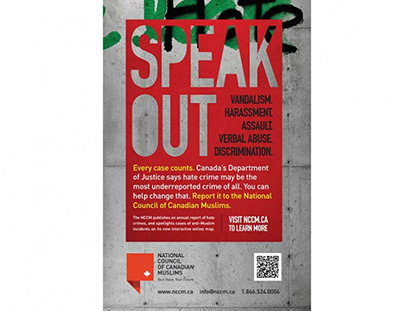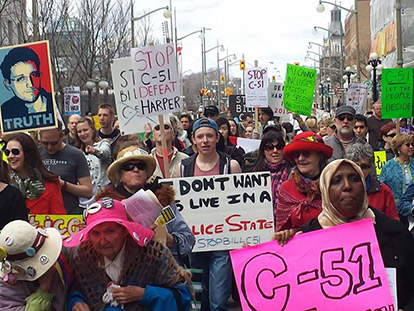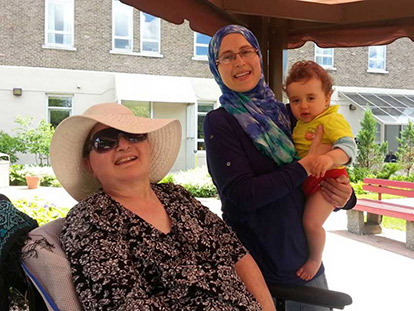Aug
Aug
I was once giving a presentation to a group of 100 or so prominent Canadian Muslims - people considered to be among the movers and shakers of our various communities ”“ lawyers, law students, activists, mosque and student leaders, professionals of various fields, etc.
During my talk about the media, I asked if anyone in the group had ever read Monia Mazigh's memoir, Hope & Despair, which chronicles her struggle to find her husband Maher Arar. He had disappeared on his way back to Canada in 2002. Less than a handful of people raised their hands.
To me, that was shocking. Ms. Mazigh's fight to bring home her husband in a paranoid, anti-Muslim, post-9-11 world should be a classic tale that we tell and re-tell each other, and our young people. Even the wider Canadian community recognized Ms. Mazigh as a heroine who fought against huge odds to shed significant light on the questionable practices of law enforcement agencies in the murky aftermath of 9-11. Mr. Arar's case eventually led the Canadian government to call for a public inquiry which resulted in a host of recommendations, an apology from the Prime Minister, and a compensation package for the family.
And yet, the fact that most in the room had never picked up her book spoke to what I perceive as one of our community's greatest weaknesses: Our inability to tell, or listen to, each other”˜s stories.
A few years ago, writing in the Globe and Mail, I pointed out how successful the Canadian Black community had been in resuscitating their history, particularly through Black History Month.
That's a time when artists, poets, musicians, writers, and a host of others, converge frequently to remind each other, and their fellow Canadians of all ages and backgrounds, of their experiences and contributions to their country.
“Muslims have yet to explore, share or appreciate their own experiences on the same level,” I wrote back in 2010. “We can produce press releases and absorb widely reported religious rulings, but what about poetry, song, art or literature? There are lots of books on Islam, but not many books written about everyday life, fictional or otherwise, that are based on Muslim themes or perspectives.”
I noted then that there are indeed pockets of creativity in various corners of our communities, but the reality is that as a collective, we fail to see the value in encouraging each other to tell our stories ”“ of our past, present, and future.
The few Canadian Muslims who do tell stories, like Ms. Mazigh, or like award-winning children's author Rukhsana Khan, or like television producer Zarqa Nawaz (her show, Little Mosque on the Prairie, broke audience records at the CBC), simply don't get the recognition they deserve. Many people within our communities often rush to critique, or simply ignore, their achievements. Sadly, it seems that too many of us do not realize how critical it is to offer an alternative narrative to the steady stream of negative news coverage of Muslims and Islam highlighted here, and around the world.
It isn't enough to rail against what some people perceive as a bias against Muslims in the media. Nor is it acceptable to ignore the negative perceptions that result when deluded individuals claim to be operating in the name of Islam by threatening or harming innocents. Shrugging our shoulders and claiming they're just plain wrong won't cut it either. We cannot build a narrative around who we aren't. We must be clear on who we are.
And defining that won't be easy. After all, we are a complex, diverse hodgepodge of young and old, immigrant and Canadian-born, male and female, “conservative” and “progressive”, and all that's in between. Do we know who we are? Are we waiting for others to tell us?
It's time for Canadian Muslims to share and hear their own stories. Through our narratives, we will understand ourselves better: as individuals, as a faith community, and as Canadians.
Amira Elghawaby is a freelance journalist and the Human Rights Co-ordinator at the National Council of Canadian Muslims (formerly CAIR-CAN).
This article first appeared in the SNMC 2013 Yearbook.
This article was produced exclusively for Muslim Link and should not be copied without prior permission from the site. For permission, please write to info@muslimlink.ca.
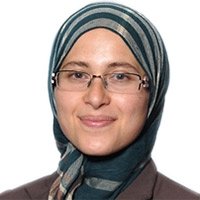
Amira Elghawaby
Amira Elghawaby is Muslim Link’s Editorial Advisor. She is providing professional guidance and training to the Muslim Link team and writers. Amira is also developing relevant newspaper and website policies and a style guide. Amira obtained a degree in Journalism and Law from Carleton University in 2001. Since then, she has worked as both a full-time and freelance journalist and editor, writing and producing stories for a variety of media including the Globe and Mail, the Toronto Star, CBC-Radio, Rabble and the Middle East Times. She is the History Editor for New Canadian Media. Find her on Twitter @AmiraElghawaby.
Latest from Amira Elghawaby
-
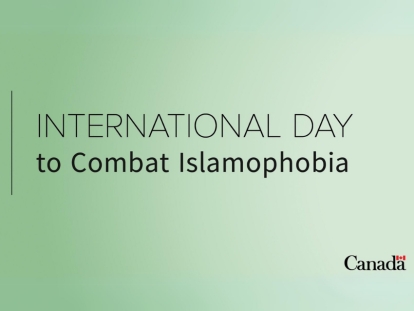 Statement by Minister Khera and Special Representative Elghawaby on the International Day to Combat Islamophobia
Statement by Minister Khera and Special Representative Elghawaby on the International Day to Combat Islamophobia
-
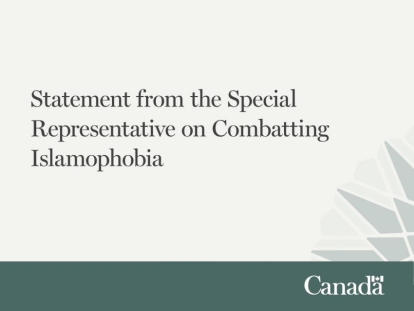 Special Representative on Combatting Islamophobia: Statement on the Finding of Terrorism in the Sentencing of the Perpetrator in the London Family Attack
Special Representative on Combatting Islamophobia: Statement on the Finding of Terrorism in the Sentencing of the Perpetrator in the London Family Attack
-
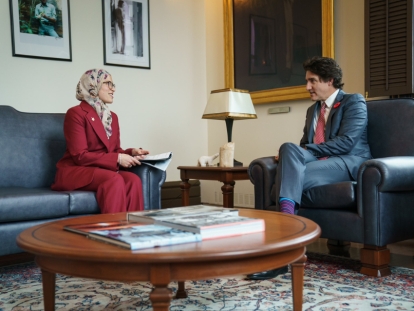 Meeting with the Right Prime Minister of Canada on the Rise in Islamophobia and Protecting Civil Liberties
Meeting with the Right Prime Minister of Canada on the Rise in Islamophobia and Protecting Civil Liberties
